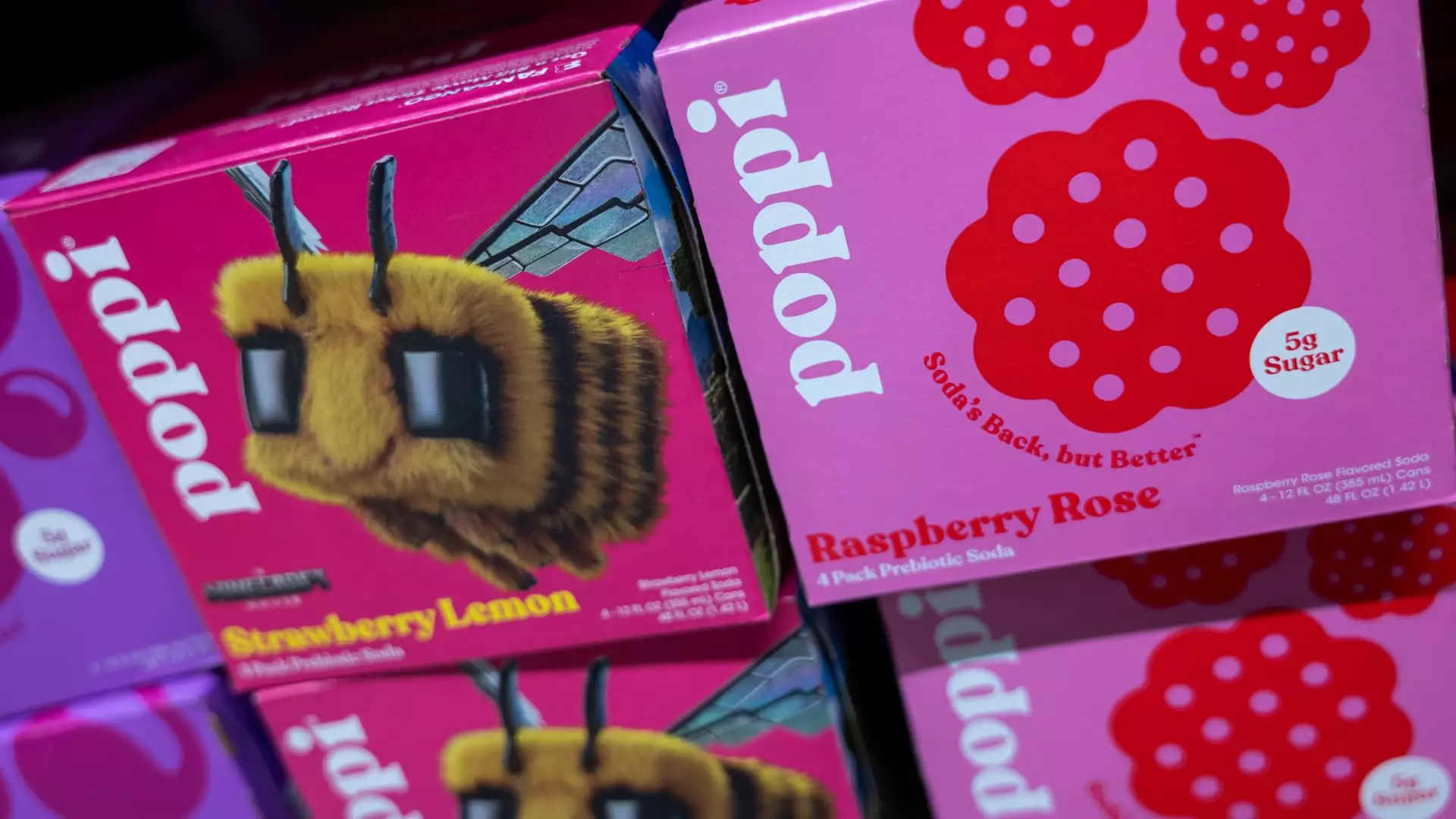In a striking maneuver signaling changing consumer preferences, PepsiCo’s recent announcement of a $1.95 billion acquisition of Poppi underscores the evolving landscape of the beverage market. While traditional soda consumption has been on a steady decline, the prebiotic soda sector has seen remarkable growth, captivating health-conscious buyers with innovative options. Amid a backdrop of decreasing sugar-laden drinks, companies like Poppi and Olipop have surged to prominence, seeking to fill a gap by offering healthier alternatives. The question looms: has PepsiCo identified a golden opportunity, or are they merely chasing a fleeting trend?
The Functional Soda Emergence
Poppi’s rise since 2018 exemplifies a broader shift towards functional beverages that tap into wellness concerns. With its core ingredients—apple cider vinegar and prebiotics—Poppi reflects a consumer desire for beverages that promise health benefits without compromising on flavor. However, the influx—and sudden popularity—of prebiotic sodas isn’t just a trend; it’s indicative of what modern consumers desire: choices that not only quench thirst but also contribute positively to their health. Healthy living has become synonymous with mindful consumption, and brands like Poppi are at the forefront of this cultural shift. PepsiCo’s move is bold; they are not just buying into a beverage brand but are investing in a lifestyle change that could redefine what soda means to consumers.
The Risk of Overzealous Growth
On the flip side, as the popularity of Poppi has surged, so too has scrutiny surrounding its health claims. The impending class-action lawsuit settlement over its alleged misleading health representations is a poignant reminder that rapid growth can attract both attention and backlash. It’s crucial that Poppi maintains its credibility; deceptive marketing practices can tarnish the trust consumers have in the emerging prebiotic beverage category. Critics often argue that, despite the fancy labeling and trendy ingredients, the underlying health benefits may not always match up to the hype. As large corporations like PepsiCo step into this space, they must tread carefully, seeking a balance between growth and authenticity.
Competition and Market Dynamics
Pepsi’s acquisition strategy is not merely about gaining access to Poppi’s impressive growth curve, which recently surpassed $100 million in annual sales. It’s also a proactive countermeasure against Coca-Cola, which is already exploring its own footing in the prebiotic space with Simply Pop. Each company recognizes that wellness-focused beverages represent a lucrative segment of the market likely to expand further. As PepsiCo pivots its strategy in response to shifting tastes, they might be steering the industry towards a future where familiar soda brands either adapt or risk fading into obscurity.
The Future of Prebiotic Sodas
There is undeniable intrigue in what lies ahead for Poppi and PepsiCo. The beverage industry is an intricate web shaped by consumer behaviors, health trends, and regulatory scrutiny. If Poppi continues to deliver genuine health benefits while navigating legal challenges, it could set a benchmark not only for PepsiCo’s investment but also for competitors. Pepsi must leverage its vast resources and marketing expertise to elevate Poppi, ensuring that it resonates effectively with a broader audience. If successful, this acquisition could serve as a powerful testament to what can happen when big corporations align with innovative, health-centric startups, potentially reshaping consumer expectations of a soda.


Leave a Reply